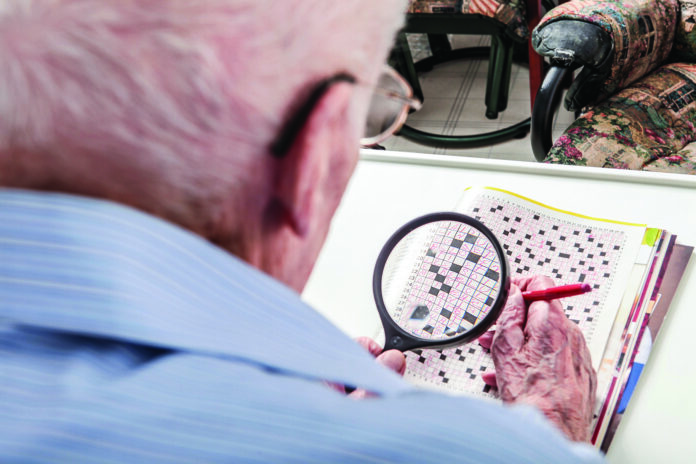SOURCE: washingtonpost.com (edited)
What is dementia? Dementia is the memory-destroying brain disease that ultimately renders people unable to handle the routine tasks of daily life, such as eating, bathing and dressing, driving and paying bills.
There is no cure for dementia and it can’t be prevented. However, from diet and exercise to protecting against hearing loss and maintaining social connections, there are proven ways to improve our health and at the same time reduce dementia risk, according to experts.
Here are just some of the measures that experts recommend:
Try a plant-based diet / Go heavy on plant-based foods. Research suggests that high vegetable intake can slow the rate of age-related cognitive decline.
Exercise regularly / Exercise controls weight and reduces the risk of heart disease and other health conditions – including dementia. “Our older patients can’t usually do more-vigorous activity, but even walking is effective at reducing Alzheimer’s disease risk,” says Paul Schulz, professor of neurology at UTHealth Houston.
Get vaccinated / There is growing evidence that staying current with your vaccines can help prevent Alzheimer’s and other dementias. Studies of the shingles and flu vaccines have found a reduced risk in vaccinated patients.
Protect against traumatic brain injury / Older people often hit their heads when they fall. Other causes of head injury include accidents – in a car or on a bicycle or motorcycle – or being hit by an object. Research has shown that even a moderate injury can increase the risk of developing dementia when you are older.
Save your hearing / Protect your ears from hearing loss. Use earplugs, sound-blocking headphones or earmuffs to guard against loud noises. Wear hearing aids if you have them or need them. Some with hearing loss shy away from socializing, which may increase their risk of dementia.
Maintain your social connections / Research suggests that those who stay socially connected are less likely to develop dementia than those who are isolated and feel lonely.
Monitor blood pressure, blood sugar and cholesterol / Hypertension can damage the heart, blood vessels and brain, and increases the danger of stroke. Having a stroke disrupts blood flow to the brain, which raises the risk of vascular dementia. High blood sugar leads to diabetes, which can increase the risk of heart disease, stroke and cognitive impairment. Lowering cholesterol can also reduce the risk of dementias.
Get a good night’s sleep / Research suggests that insomnia and daytime sleepiness are associated with a greater risk of developing Alzheimer’s disease.
Reduce alcohol intake / Alcohol can exacerbate such health disorders as diabetes, hypertension, stroke and memory deficits, all of which raise the risk of dementia.
Stop smoking / Smoking is linked to numerous serious health conditions that raise the risk of dementia, including heart disease and stroke. Experts say there is solid evidence to connect smoking to the risk of dementia.
Do crossword puzzles / Activities that engage your brain can help. Read, write, and play board games. Studies show that such pastimes make a big difference in your fight against dementia. Think of your brain as a muscle, meaning, if you don’t exercise it, it performs less well.


